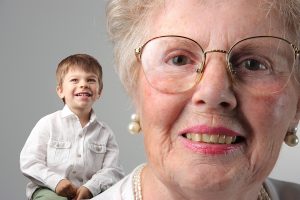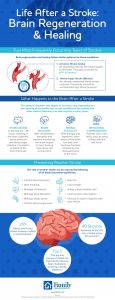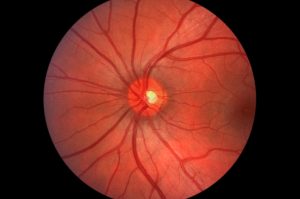Guest Blog: 6 Ways to Naturally Reverse and Heal Decayed Teeth
There is no argument about one thing – brushing is important when you have dental braces. Without proper oral care, you may face issues like tooth decay or cavities. If you do notice a cavity, there is a way to naturally reverse the decay and heal the teeth. Let’s see how you can do that.
- Make Changes in Diet
You can reverse tooth decay by making a few changes in your diet. Some adjustments include:
- Limit the consumption of sugary foods and drinks as sugars can cause plaque and cavities.
- Consume more calcium-rich foods such as broccoli and dairy to strengthen the teeth.
- Add Vitamins and Supplements to the Diet
Certain vitamins help in producing saliva. This, in turn, prevents the bacteria from staying on the teeth. Some vitamins also help in making the teeth stronger. Adding nutritious food to the diet can heal your teeth naturally.
Foods that promote salivation include peas, bananas, and brussels sprouts. Take supplements of Vitamin B, D, iron, and magnesium if you cannot get them from your diet. Eating whole-grain foods and seafood can give the required dose of nutrients and improve oral health.
- Practice Oral Hygiene
Good oral hygiene practices help in protecting the teeth from early decay. Also, make sure to follow a strict oral hygiene routine when you have braces.
- Brush twice a day to remove food particles stuck in the teeth and to keep them clean.
- Floss at least once a day to remove plaque and food that gets stuck under the gums and brackets
- Use a mouthwash to get rid of bacteria in the mouth
- Maintain Necessary pH Levels in the Mouth
Our teeth stay healthy in an alkaline environment. As soon as the pH levels start to dip below the neutral 7, our teeth will start to break down and demineralize.
When there is a pH imbalance, it can create an environment for bacteria to grow and thrive. Avoid foods that can cause pH imbalance such as coffee, citrus fruits or sugars.
Use a remineralizing toothpaste as it can increase the pH level of the mouth and strengthen the tooth enamel.
- Consume Natural Probiotics
Bad bacteria that cause infection search for smaller areas in the teeth to hide. They would decrease the pH value of the mouth as well. Probiotics help in offsetting the acidic pH in the mouth. Consume foods that are rich in probiotics such as curd, kombucha or sauerkraut.
These foods stimulate the production of healthy bacteria in the mouth. This further helps in preventing plaque build-up or decaying of teeth.
- Oil Pulling
This is a simple yet very effective detoxification process for teeth care that includes swishing oil in your mouth for a few minutes. This technique can prevent plaque build-up and gum diseases like gingivitis. Do not swallow the oil and rinse with warm saltwater after swishing. Follow this by brushing your teeth.
Though these natural methods can be very effective, remember that everyone responds differently to these methods. You must also visit your orthodontist regularly to make sure there are no dental problems.
Author Bio:
Dr. Satish Pai is an orthodontist and an Ivy League trained dentist who has served as a faculty at Columbia University. He believes that a perfect smile not only makes a person look great but feel great. As the founder of Putnam Orthodontics and a Partner at Rome Orthodontics, he is dedicated to providing the best orthodontic treatments to his patients. He also writes to educate people about everything orthodontics and the importance of correctly aligned teeth along with good oral health. In his free time, you can find him golfing, doing yoga or surfing, and spending time with his family.
End of Life: Palliative Care and Hospice
The human survival instinct is strong and our spirits are made to embrace life. But what happens when your loved one is diagnosed with a terminal illness that has no cure? How do you reconcile the certain death of your spouse, parent, or child? Where can you turn when death is close or imminent?
We are fortunate to live in a society that supports excellent care for those who are coming towards the end of their life. As difficult as this journey is for persons and their family members, the appropriate level of service can provide the needed care and comfort to make the end of life a time of peace and reflection rather than pain and suffering.
Two major services are readily available to bring comfort and promote quality of life even until the end of life. These are palliative care and hospice.
Palliative care is a consultative service for those with life-limiting illnesses who may not yet meet the criteria for hospice or who do not wish to enter hospice yet. The focus of palliative care is comfort and symptom management, but patients may still continue treatments such as radiation, chemotherapy, dialysis, home health, or other therapy. Palliative services can be provided in the acute hospital setting, in the home, or in a long-term care facility. A new program called PRIME (Progressive Illness Management Expertise) by AseraCare, focuses on symptom management, goals of care planning, medication management, and transition management. PRIME provides palliative care through nurse practitioners and social workers who coordinate care with your regular medical providers. For persons with serious chronic illnesses who experience recurring rehospitalizations, palliative care management can provide care coordination and smooth transitions to other settings, including hospice, at the appropriate time.
Hospice is a supportive and comprehensive service for those who are dying. The National Hospice and Palliative Care Organization states that the foundation of hospice and palliative care is the belief that “each of us has the right to die pain-free and with dignity, and that our families will receive the necessary support to allow us to do so”. Generally, to qualify for hospice a patient is expected to live 6 months or less. Hospice uses an interdisciplinary team of physicians, nurses, social workers, home health aides, chaplains, bereavement counselors, trained volunteers and others to provide comfort and support to the dying patient and family. These services are covered by Medicare, Medicaid, and most private and commercial insurances. Hospice care can be provided wherever a patient lives, with 24-hour on-call availability.
End of life decisions are often difficult for families to discuss, but palliative care and hospice programs provide the help that is needed to have these conversations. Their aim is to help provide quality of life until death, helping people “live until they die”. If your loved one may qualify for assistance, don’t delay in seeking this support. It may be the best way you can help your family member have a peaceful end of life.
Five tips for Grandparents to stay connected with family
With the birth of my daughter’s second child, I began to reflect on the important role that grandparents can play in the lives of their grandchildren. Here are five essential tips for older adults who want to have a lasting influence in the lives of their children and grandchildren.
Visit often. For those of us fortunate enough to live near our children and grandchildren, it is easy to see them often. Grandparents may even be the caregivers while parents are working. Visits don’t always have to be planned. Sometimes the best family time is a spontaneous invitation to dinner and a movie. However, sometimes distance can prevent regular visits. Some grandparents make it a goal to see their distant grandchildren once every 6 weeks or every few months. Be sure to take advantage of technology for your time together. Set a regular time to Skype or do Face-time. Don’t miss out on the subtle changes in those early years while babies are growing. Exchanging pictures may help, but they don’t replace the in-person experience. You may even think of relocating to be closer to family. For older grandchildren, be sure to have their cellphone number. Text them often and exchange pictures to stay involved in their lives and let them know you are available to them. Even small connections throughout the week (but without being annoying to teenagers of course) can make a difference in your relationship with your grandchildren.
Offer to help in practical ways. Working parents with young children will need a break at times. Ask how you can best help. Offer to keep the children for an overnight while mom and dad have a special dinner or weekend getaway. Many grandparents like to take their grandchildren on trips without the parents. Places like amusement parks, the zoo, or day trips to the water park or national forest all provide good diversion and quality time with Grandma and Grandpa while giving parents a rest. For even more quality time, take the older grandchildren on a cruise, camping in the mountains, or to a resort without their parents. For the mom with a newborn, take meals to the house (if you live close), do her grocery shopping or laundry, or send her a new bathrobe to show you are thinking of her. A favorite role model of mine sends the grandchildren a “baby shower in a box” with all sorts of goodies when she can’t be present due to distance or health concerns.
Plan special activities. Special activities need not be expensive. This could mean a trip to the park with Grandma or a special morning walk each week with Grandpa. My father used to take every grandson on a bow-hunting trip when they turned 12 years old. This was a rite of passage for every boy in the family. Grandpa would mount their first deer head for them and buy them a special hunting knife to commemorate the occasion. The girls in the family would take a trip to a Disney resort while the men were hunting. Grandchildren remember these events forever.
Attend special events. How fortunate are the kids whose grandparents are able to attend basketball and volleyball games, swimming tournaments, and Grandparent’s Day at school! Take advantage of being able to attend those dance recitals and school plays. If you live far, plan your visits to be able to attend some significant events like graduations, wedding showers, or school performances. This makes lasting memories with your family.
Be a constant in their lives. My parents divorced when I was 9 years old, and my paternal grandparents were the one constant in my life at that time. When a child’s world is jolted by change, grandparents can be that steadying influence that doesn’t change. They provide stability and security in an unsteady world for a child. The most important thing to remember is to be there. You don’t have to be the all-star parent or grandparent, but your children will remember that you were there for them when it counted the most.
Guest Blog: Adjusting to Life After a Stroke
In America, stroke is the third leading cause of death. The brain and heart rely on each other to sustain basic functionality of the human body. The brain controls a large portion of the body’s range of capabilities and nerve signaling. Your brain has multiple purposes, but a single stroke can put those critical functions at risk. Communication, memory, emotional activity, and physical capabilities can all be affected when the brain is not operating at its utmost potential.
Difference Between a Stroke and a Heart Attack
A stroke and a heart attack may seem similar but are very different. Both ailments occur due to a shortage of oxygenated blood and blood flow, except strokes primarily affect the brain while heart attacks mainly target the heart. When the body’s blood flow to the heart is blocked, sometimes due to a blood clot, it can cause a heart attack. A stroke, on the other hand, can cause possible brain tissue to decay and long-term disability or death.
Stroke Causes
The leading cause of strokes is anything that leads to blocked blood supply or a burst blood vessel, cutting off the oxygen flow to the brain. A number of risk factors for a stroke, such as high cholesterol and obesity, can be medically managed or treated. Nevertheless, as with certain terminal conditions, particular risk factors are more challenging to address.
An individual’s lifestyle has a considerable effect on their health. Harmful choices can lead to chronic illnesses with detrimental long-term consequences. Nearly everything that goes into the body has the potential to affect your physical and emotional well-being. For example, eating highly processed fast food can possibly make the person feel groggy and lethargic, while a plant-based diet can help support a healthy immune system.
Controllable risk factors for a stroke are:
- Diabetes
- Lack of exercise
- High blood pressure
- High cholesterol
- Excessive alcohol or drug use
- Smoking
Uncontrollable risk factors include:
- Age: The risk of having a stroke doubles every ten years after the age of fifty-five.
- Race: Black and nonwhite Hispanic Americans are affected more than white Americans.
- Gender: Although strokes occur more regularly in men, women are more prone to suffer one later in life, placing them at higher danger of nonrecovery.
- Family history: Strokes are more likely to occur within families that carry genetic disorders.
Even if someone is taking good care of their body and do not carry any genetic risk factors, they can still be at risk due to:
- Geography: Strokes happen more in southeastern America than in the rest of the country, perhaps due to elements of the regional culture such as diet.
- Climate: Extreme temperatures increase the risk of a stroke.
- Economic and social circumstances: Particular evidence suggests that stroke cases are more prevalent in low-income communities.
Stroke Treatment
To properly treat a stroke, doctors must first determine the causes of the symptoms through a CT scan or other stroke tests. Stroke tests vary from simple physical analysis and blood analysis to more involved procedures such as echocardiograms, cerebral angiograms, MRI scans, or carotid ultrasounds. About a quarter of stroke survivors will suffer a second stroke, making immediate treatment vital.
Some steps to help stroke patients recover include seeking support and therapy, monitoring medications, being on the lookout for dizziness or imbalance, ensuring a healthy diet, and keeping the brain active. It is crucial to remember that recovering from a traumatic brain injury such as a stroke takes time and patience.
Recovery can be a long-term process. Hence, it is imperative to understand how the body and brain are affected. Refer to the following infographic made by Family Home Health Services for further information on brain recovery as well as stroke-prevention practices to incorporate into everyday life.
Glaucoma Symptoms
Background
Glaucoma is a group of degenerative eye diseases with various causes that leads to progressive optic neuropathy, in which the optic nerve is damaged by high intraocular pressure (IOP), resulting in blindness. Glaucoma is a leading cause of visual impairment and the second leading cause of blindness in the United States; it occurs more often in those over 40, with an increased incidence with age (3% to 4% in those over age 70) (Fingeret, 2010; Kennedy-Malone et al., 2000; Podolsky, 1998).
Risk factors
Unlike cataracts, there are some ethnic distinctions with the development of glaucoma. African Americans tend to develop it earlier than Caucasians, and females more often than males. Glaucoma is more common in African Americans, adults over age 60 (especially Mexican Americans), and people with a family history (NIH, 2013). Other contributing factors include eye trauma, small cornea, small anterior chamber, cataracts, and some medications.
Signs and symptoms
Although the cause is unknown, glaucoma results from blockage that limits the flow of aqueous humor, causing a rise in intraocular pressure (IOP). Two major types are noted here: acute and chronic. Acute glaucoma is also called closed angle or narrow angle. Signs and symptoms include severe eye pain in one eye, blurred vision, seeing colored halos around lights, red eye, headache, nausea, and vomiting.
Symptoms may be associated with emotional stress. Acute glaucoma is a medical emergency and persons should seek emergency help immediately. Blindness can occur from prolonged narrow angle glaucoma.
Chronic glaucoma, also called open angle or primary open angle, is more common than acute (90% of cases are this type), affecting over 2 million people in the United States. One million people probably have glaucoma and don’t know it, and 10 million people have above normal intraocular pressure that may lead to glaucoma if not treated (University of Washington, Department of Ophthalmology, 2008). This type of glaucoma occurs gradually. Peripheral vision is slowly impaired. Signs and symptoms include tired eyes, headaches, misty vision, seeing halos around lights, and worse symptoms in the morning. Glaucoma often involves only one eye, but may occur in both.
Treatment
Since there is no scientific evidence of preventative strategies, early detection in those at risk is important. Treatment is essential to prevent loss of vision, because once vision has been lost to glaucoma, it cannot be restored. Diagnosis is made using a tonometer to measure IOP. Normal IOP is 10–21 mm Hg. Ophthalmologic examination will reveal changes in the color and contour of the optic nerve when glaucoma is present. Gonioscopy (direct exam), which is performed by an optometrist or ophthalmologist, provides another means of evaluation. Older persons and those at higher risk should have a yearly eye exam to screen for glaucoma.
Treatment is aimed at reducing IOP. Medications to decrease pressure may be given, and surgical iridectomy to lower the IOP may prevent future episodes of acute glaucoma. In chronic glaucoma, there is no cure, so treatment is aimed at managing IOP through medication and eye drops. Consistent use of and correct administration of eye drops is important. Older adults should be assessed for safety related to visual changes and also reminded to schedule and attend regular visits with their ophthalmologist.
Adapted from Mauk, K. L., Hanson, P., & Hain, D. (2014). Review of the management of common illnesses, diseases, or health conditions. In K. L.
Mauk’s (Ed.) Gerontological Nursing: Competencies for Care. Sudbury, MA: Jones and Bartlett Publishers. Used with permission.
Glaucoma Symptoms
http://www.nlm.nih.gov/medlineplus/tutorials/glaucoma/htm/index.htm




